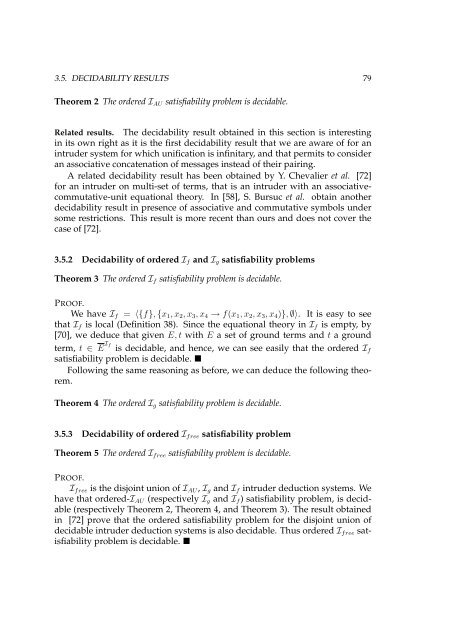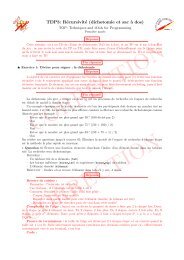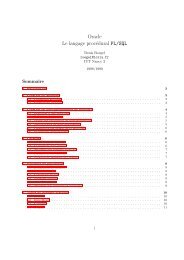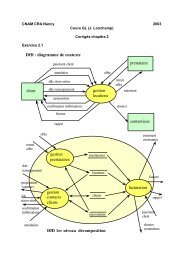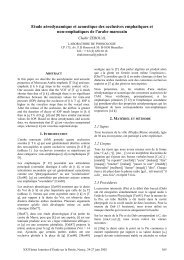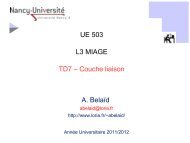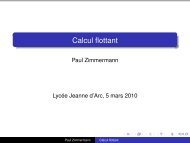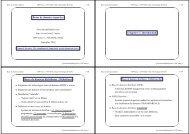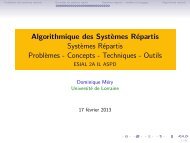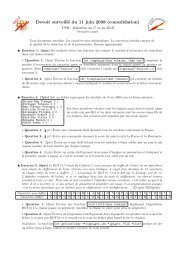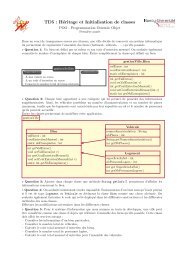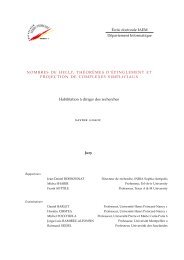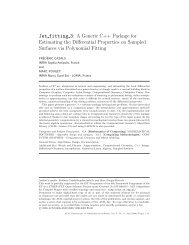Logical Analysis and Verification of Cryptographic Protocols - Loria
Logical Analysis and Verification of Cryptographic Protocols - Loria
Logical Analysis and Verification of Cryptographic Protocols - Loria
Create successful ePaper yourself
Turn your PDF publications into a flip-book with our unique Google optimized e-Paper software.
3.5. DECIDABILITY RESULTS 79<br />
Theorem 2 The ordered IAU satisfiability problem is decidable.<br />
Related results. The decidability result obtained in this section is interesting<br />
in its own right as it is the first decidability result that we are aware <strong>of</strong> for an<br />
intruder system for which unification is infinitary, <strong>and</strong> that permits to consider<br />
an associative concatenation <strong>of</strong> messages instead <strong>of</strong> their pairing.<br />
A related decidability result has been obtained by Y. Chevalier et al. [72]<br />
for an intruder on multi-set <strong>of</strong> terms, that is an intruder with an associativecommutative-unit<br />
equational theory. In [58], S. Bursuc et al. obtain another<br />
decidability result in presence <strong>of</strong> associative <strong>and</strong> commutative symbols under<br />
some restrictions. This result is more recent than ours <strong>and</strong> does not cover the<br />
case <strong>of</strong> [72].<br />
3.5.2 Decidability <strong>of</strong> ordered If <strong>and</strong> Ig satisfiability problems<br />
Theorem 3 The ordered If satisfiability problem is decidable.<br />
PROOF.<br />
We have If = 〈{f}, {x1, x2, x3, x4 → f(x1, x2, x3, x4)}, ∅〉. It is easy to see<br />
that If is local (Definition 38). Since the equational theory in If is empty, by<br />
[70], we deduce that given E, t with E a set <strong>of</strong> ground terms <strong>and</strong> t a ground<br />
term, t ∈ E If<br />
is decidable, <strong>and</strong> hence, we can see easily that the ordered If<br />
satisfiability problem is decidable. �<br />
Following the same reasoning as before, we can deduce the following theorem.<br />
Theorem 4 The ordered Ig satisfiability problem is decidable.<br />
3.5.3 Decidability <strong>of</strong> ordered Ifree satisfiability problem<br />
Theorem 5 The ordered Ifree satisfiability problem is decidable.<br />
PROOF.<br />
Ifree is the disjoint union <strong>of</strong> IAU, Ig <strong>and</strong> If intruder deduction systems. We<br />
have that ordered-IAU (respectively Ig <strong>and</strong> If) satisfiability problem, is decidable<br />
(respectively Theorem 2, Theorem 4, <strong>and</strong> Theorem 3). The result obtained<br />
in [72] prove that the ordered satisfiability problem for the disjoint union <strong>of</strong><br />
decidable intruder deduction systems is also decidable. Thus ordered Ifree satisfiability<br />
problem is decidable. �


